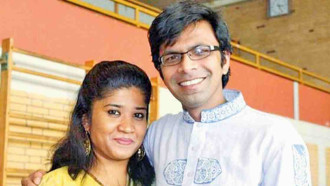Two labour courts to be relocated from Dhaka to Tongi, Narayanganj

Dhaka: Law Minister Anisul Huq on Tuesday said two labour courts will be relocated from Dhaka to Tongi and Narayanganj, two major industrial areas with high concentrations of garment factories, to ensure quick disposal of cases.
He said the process will also be initiated to set up two new labour courts in Sylhet and Rangpur where they can serve the country's northeast and northwest regions.
The Law Minister was addressing the inaugural session of a three-day training course on 'International Labour Standards and Labour Legislation' in the city to equip judges and judicial officers with better knowledge of international labour law.
Referring to the removal of the statue of Greek goddesses 'Lady Justice' from the Supreme Court premises, the Minister said it is a matter of the Supreme Court, I can only say that as the Supreme Court is a holy place we do not want to destroy its purity centering the issue."
In all, 30 judges and judicial officials are attending the training programme organised by International Labour Organization (ILO) together with the Judicial Administration Training Institute (JATI).
The minister hoped that the training on international labour standards would help judges deliver judgements on labour disputes in a more methodical way.
The training sets out to enhance the capacity of judges and lawyers to make appropriate use of International Labour Standards (ILSs) in the national context.
ILSs are legal instruments that outline basic principles and rights at work. These are also important tools for the development of national legislation and strengthening of domestic case laws on labour matters.
State Minister for Labour and Employment Md Mujibul Haque highlighted the importance of the training. "The government is committed to ensuring that labour rights in Bangladesh are fully respected. The judiciary has a vital role to play in this regard and this training will support them to carry out their duties," he said.
The course will help judges and lawyers determine when and how they can use international labour law within Bangladesh, said the ILO in a press release.
It will also help judges to understand the relevance of the analysis and pronouncements of the ILO's supervisory bodies and how they can be used, it said.
Also speaking at the event Norwegian Ambassador Sidsel Bleken stressed how the work of the judges benefits all workers. "With increased knowledge through this training course, I hope you all will play a key role in identifying, sharing and disseminating best practices to uphold rights and create an inclusive society."
Country Director of ILO Bangladesh Srinivas Reddy said the ILS help build a harmonious system of labour relations and this training will be valuable for judges and lawyers seeking to settle labour disputes.
The training programme is the second of a series of training for law professionals on labour matters.





